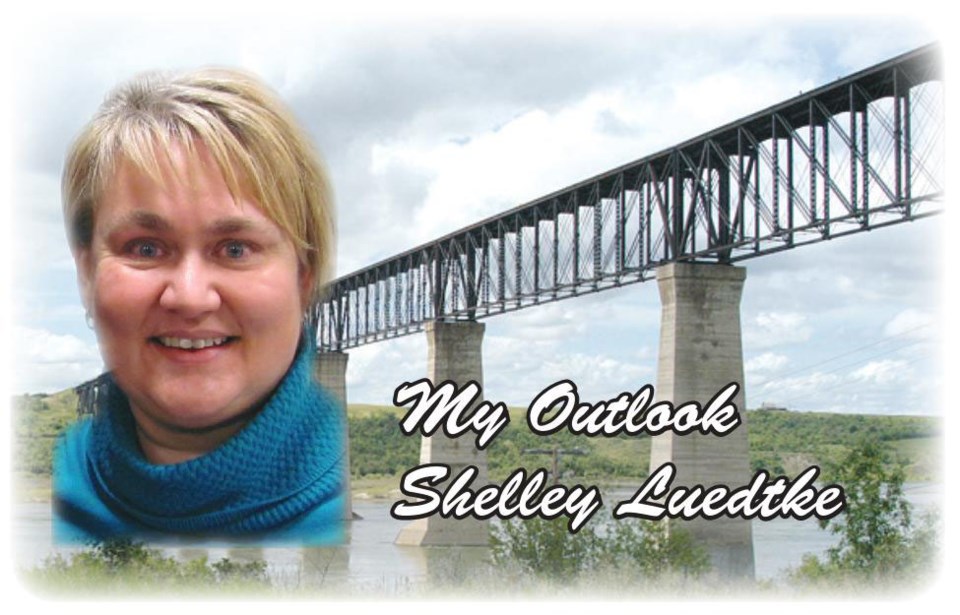What is your reaction each year to the first signs of winter? Are you like the child who claps their hands in delight at the thought of snowmen and sledding? Do you grumble about shovelling sidewalks and scraping windows? Do you express thanksgiving for the precipitation?
As I let the dog out the morning we had snow my first thought was not delight. Throughout the day I was reminded how welcomed it was by many. While some grumbled about slush, others were smiling over the greatly needed moisture.
When I lived in another province, I listened to a radio station that would define good or bad summer days based on weather. If it was sunny and hot, it was a good day. Rain or anything else that would interrupt sun and sand activity was quickly labelled a bad day. It's as if they failed to recognize the importance of rain and cooler temperatures that were so necessary to the livelihood of many listeners who lived in the region. Certainly we can use the weather as a factor in determining what makes a good day, but inherent in that is the question “good for whom?”
When you need something that is contrary to what others need, it can lead to a divide. Person A wants a mild winter and little snow and ice. Person B earns a living from the conditions provided by that very snow and ice. Somebody will be happy while someone else feels the impact on their life. What do we do when our needs are opposite from what the person next to us needs?
We can't do much about the weather but there are things that can and do change based on what we advocate for and support. Or against.
Someone wishes for a change to the constitution. Someone else wishes for clauses to remain as they are. Some individuals want culture to shift to embrace a different viewpoint. Others want culture to stay as is to support specific values. We quickly find ourselves at odds with one another as we clamour for opposing points of view. So what do we do? How do we deal with one another in response?
Etiquette experts long ago instructed that polite people do not bring up topics of religion, politics, sex, or money in social conversations. The list has lengthened over the years to include the food in front of you, noting changes in anyone’s looks, other’s possessions, occupations, or the clothing worn by those you are visiting with.
What’s left? Well, I suppose the weather, except that can obviously put us at odds as well.
I find it rather frustrating that the focus has been on the list of topics that should be avoided yet the most important word in that statement gets overlooked. Polite. Polite people don’t talk about these issues. But isn’t that, in fact, the very problem? The polite people aren’t talking about the most important things we are facing, and instead the conversation (if it can even be called that) is hijacked by those who are decidedly impolite. Those who use extreme language. Who yell the loudest. Those who seek to discredit, even humiliate, anyone who opposes them. Accusatory tones take center stage. Insults hurled. Anger unleashed. It’s getting us pretty much…nowhere.
There are many, many topics that spark intense debate and isn’t that the point? We should be able to talk about these issues. We must. They have a profound impact on our lives. But the conversations need to be allowed to be open and fair. They should be discussions that rise above the rhetoric that is doing little but entrenching us. We do not move forward by staying silent or speaking superficially. We need to talk. So let’s do it. Politely.
Do I feel my point of view has been all but silenced in some of these issues? You bet I do. But the response is not to start yelling back or being vicious, disrespectful or hurtful. The response is to understand that what I want and want you want may very well be in opposition but that should not make us enemies. It can’t. We need each other if we are going to deal with the tough things we are facing.
Those who can speak politely –please join the dialogue and have your say. As for those who can’t, your silence is the best thing you can add to the conversation. Polite people don't talk about that? They should. That’s my outlook.




